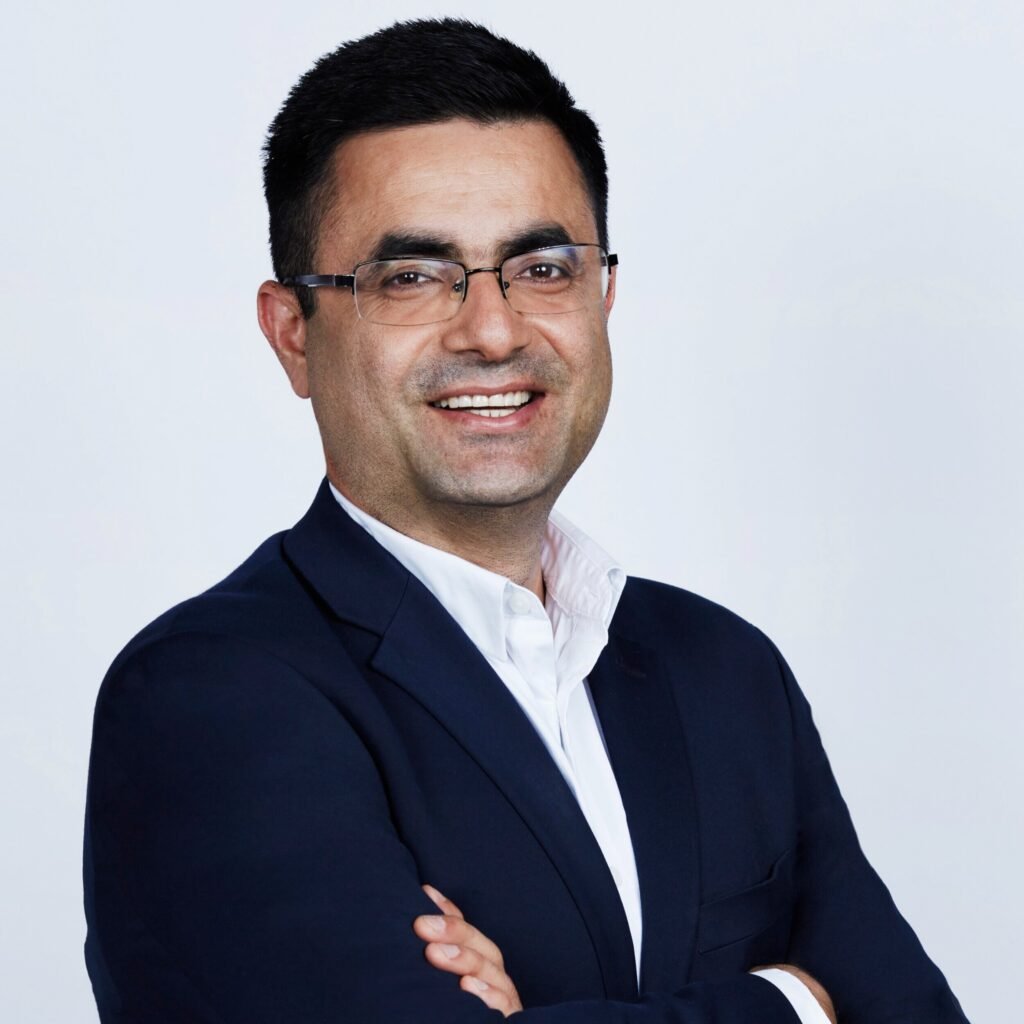I recently went one on one with Vivek Sharma. Vivek is the CEO of InStride and on the board of JetBlue.
Adam: Thanks again for taking the time to share your advice. First things first, though, I am sure readers would love to learn more about you. How did you get here? What experiences, failures, setbacks or challenges have been most instrumental to your growth?
My professional journey has been filled with rewarding experiences, including serving as the CEO and Co-Founder of InStride. Prior to this, I gained valuable executive experience at The Walt Disney Company, Yahoo and McKinsey & Company. My passion for education can be traced back to my teaching experience as an adjunct professor of data science at the University of Southern California.
InStride was founded with a goal of creating synergies between higher education and corporate leaders to cultivate the workforce of the future. In service of this mission, InStride has enabled more than 40 corporations to provide career-boosting degrees, credentials and diplomas to their employees, helping 42,000 employee-learners avoid $400M in student debt.
Adam: What is your best advice on building, leading and managing teams?
Vivek: Leaders must start by establishing and continuously reinforcing the mission, values, and culture of the organization, as well as being intentional about recruiting people with a functional and cultural fit.
Communicating the team’s mission, values and culture must be done transparently across all levels of the organization, starting at the CEO level. Transparency promotes realistic expectations among team members and develops a sense of trust and commitment. Particularly in times of crisis or uncertainty, such as the Covid-19 pandemic, leaders are presented with an opportunity to both solidify what is working in their organization and make necessary changes that can contribute to greater future success.
Leaders also need to set very clear standards on recruiting, retention, and promotion – these are the decisions where a clear articulation of values and culture is most important. At InStride, we’re able to recruit for both functional and cultural fit by ensuring that each candidate meets multiple team members across a range of departments and roles who can ask skill-related and values-related questions. I personally read all interview feedback reports and typically try to conduct the last interview before an offer is made.
Adam: What are the most important trends in technology that leaders should be aware of and understand? What should they understand about them?
Vivek: The Covid-19 pandemic turbocharged the need for businesses to embrace a “digital-first” mindset, forcing many businesses – even entire industries – to accelerate their digital transformations at record speed. Technologies like AI, machine learning, virtual collaboration tools, and technical skills like data analytics and coding, are now commonplace in industries that once viewed them as foreign. Businesses that had been mainly brick-and-mortar, or conducted business in-person, had to quickly adapt to join an already increasingly digital world. This placed immense pressure on CEOs to find a way to upskill their employees to meet the needs of what is now a digital-first economy.
We remind business leaders that digital technologies tend to have a multiplicative impact and, hence, businesses who deploy them effectively enjoy compounded growth – there was no Google or Amazon just 25 years back, while Facebook, Uber and TikTok were startups only 15, 10 and 5 years back respectively. Conversely, companies that ignore the effect of digital technologies on their businesses tend to struggle. It’s critical for leaders to upskill and reskill employees through workforce education to maintain a competitive edge.
Adam: What do you believe are the defining qualities of an effective leader?
Vivek: In my experience, the best leaders are the ones who communicate a clear vision for the organization, build a team that’s fully aligned with that vision and deliver exceptional results.
It’s not enough to just have a vision, however. Leaders need to over communicate and continuously reinforce that vision, as well as articulate the why and how, not just the what. This means discussing each team member’s role in bringing that vision to life and answering any questions along the way. For CEOs in particular, team alignment needs to occur at multiple levels – your employees, your investors, your board, your customers, your suppliers, and your community. Finally, an effective leader must deliver on the expected results – the proof is in the pudding.
Adam: How can leaders and aspiring leaders take their leadership skills to the next level?
Vivek: It’s common for the best athletes in the world to have a personal coach and work consistently on honing their craft. In business, it works much the same way. Leaders need to take charge of their own learning and development. By doing that, they also instill a learning culture and growth mindset among their team – a culture where people can learn from one another, no matter what their title or role may be. Providing education and professional development opportunities puts leaders and their employees in a mindset of continuous advancement, fosters a more open and collaborative environment, and drives a greater sense of empowerment.
Adam: What do you hope readers take away from your new book?
Vivek: My hope is that my book, “C-Spark: CEO-led Workforce Education for the Age of And,” serves as a call-to-action for CEOs of all organizations to drive business impact through strategic workforce education. When CEOs elevate and leverage strategic enterprise education programs, they can usher in an era, not unlike the Space Age or Information Age. It’s called the Age of And, where achieving simultaneous, values-driven goals is no longer optional. It’s an age marked by not just one, but many “ANDs” – business AND social impact, employee AND learner, customer AND community, shareholder AND society, good fiduciary AND good citizen, doing well AND doing good.
The book outlines a CEO-led strategic approach to workforce education with the goal of helping companies seize opportunities to generate revenue, recruit and retain qualified talent, ensure business agility, and contribute to creating a more inclusive and diverse working environment. Overall, these strategies will assist in the advancement of authentic corporate citizenship, and the creation of industry-leading brands.
Adam: What are your three best tips applicable to entrepreneurs?
Vivek: My three tips to entrepreneurs are to embrace optimism, focus on solving a BIG problem and ensure product-market fit before scaling.
The whole concept of entrepreneurship is centered around being optimistic because there will inevitably be highs and lows as you grow your company. The most effective leaders can inspire and motivate their teams even in the most difficult moments. Leaders who demonstrate an optimistic approach to challenges and opportunities have stakeholder groups who inevitably embody that trait. But optimism needs to be authentic. People can always sense when it’s not genuine, which defeats the purpose entirely. I am fond of saying “the best is yet to come.” It simultaneously keeps me humble and hungry when things are going well, as well as focused and motivated when they are not.
It also helps if your venture is focused on solving a BIG problem. A big problem typically has a big TAM (total addressable market) which excites your team. In the book, “What It Takes,” Stephen Schwarzman writes, “If you are going to commit yourself to something, it’s as easy to do something big as it is to do something small. Both will consume your time and energy, so make sure your fantasy is worthy of your pursuit, with rewards commensurate to your effort.” Similarly, InStride itself was founded to solve a big problem – how to help employers provide life changing education to their employees, while delivering on business goals, when the current approaches are costing $180B and not delivering results.
Finally, entrepreneurs should aim to quickly get a proven product-market fit – one where your innovative solution is LOVED by your core customers before you start scaling. InStride’s founding was inspired by the Starbucks College Achievement Plan (SCAP), which has enabled 7,000 Starbucks employees to earn college degrees. The program has had a meaningful impact on the business in terms of both recruitment and retention. For example, 20% of those who apply to Starbucks say SCAP is the driving reason for their interest, and there has been a 3x promotion rate for SCAP participants compared to non-participants. This success formed the catalyst for founding InStride and we are focused on bringing that impact to corporate America.
Adam: What are your best tips on the topics of sales, marketing and branding?
Vivek: In today’s environment, companies that stand out are ones that demonstrate their brand as a force for good – today’s companies must do well and do good. When it comes to sales, marketing and branding, companies should create a brand purpose that goes beyond serving their bottom line and that inspires employees and customers to contribute to the betterment of society at large.
InStride is a public benefit company, meaning its impact is not only measured by financial returns, but also the social impact it generates. We play a major part in being the preferred, premium solution to bridge the education gap. When companies provide their employees with the career-boosting benefits of a quality education, they drive social impact for their employees, their employees’ families and the community at large.
Adam: What is the single best piece of advice you have ever received?
Vivek: Very early in my career, I was having lunch with a mentor and asked for some career advice. He talked about the increasing pace of change and that “every six months at least one out of the following — your boss, your role, your title, your company or your division — may change, and getting anchored around things that keep on changing, makes no professional sense.” Because of this, he suggested to anchor around “Learn, Deliver, and Connect” — continuously and intentionally learning market-relevant skills, building a reputation for (over)delivering on business priorities and connecting at a personal level with colleagues, customers, and industry leaders. Any changes that would arise on a professional level would take care of themselves if I continued to focus on those three priorities. It was one of the most valuable pieces of advice I’ve received.









